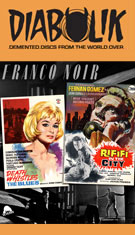
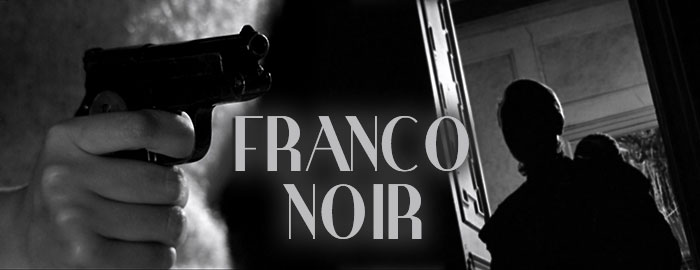
DEATH WHISTLES THE BLUES
B&W, 1962, 81 mins. 16 secs.
Directed by Jess Franco
Starring Conrado San Martín, Danik Patisson, Perla Cristal, Georges Rollin, Manuel Alexandre
RIFIFI IN THE CITY
B&W, 1963, 104 mins. 22 secs.
Directed by Jess Franco
Starring Fernando Fernán Gómez, Jean Servais, Laura Granados, Antonio Prieto, Robert Manuel
Severin Films (Blu-ray & DVD) (US R0 HD/NTSC) / WS (1.78:1) (16:9)
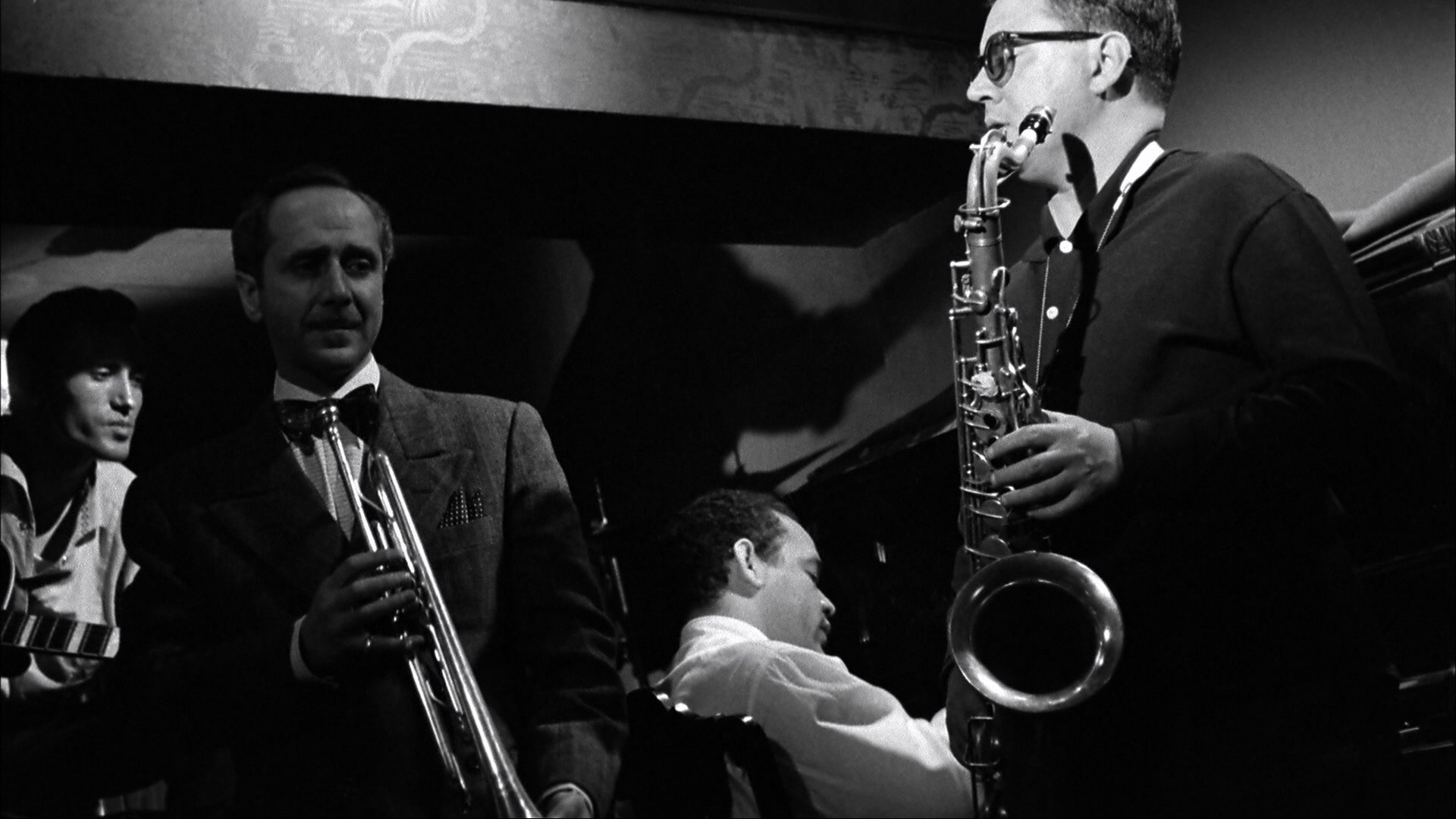 international movie map with his stylish 1962 shocker The Awful Dr. Orlof, Spanish director Jess
international movie map with his stylish 1962 shocker The Awful Dr. Orlof, Spanish director Jess 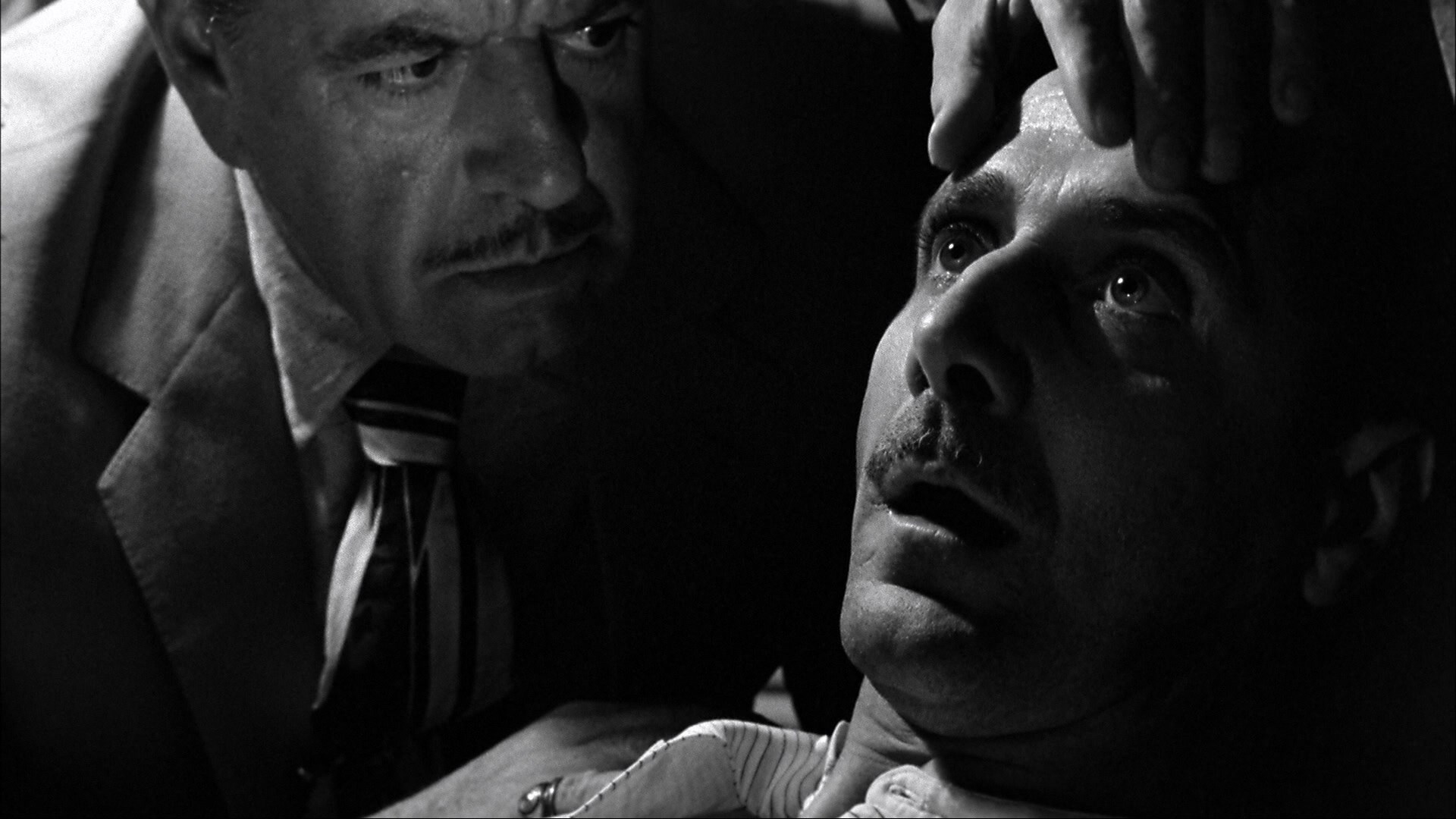 Franco became one of the most important names in European horror. Though the merits of his output remain hotly debated to this day, there's no doubt that he's one of the most significant names in Spanish genre filmmaking and more popular today than ever before. In the immediate wake of Orlof (his fifth film), Franco continued to explore the possibilities of monochrome moodiness with two noir-inspired films now making their English-friendly home video debuts and filling in a significant chapter in the director's evolution. Dubbed Franco Noir, the double feature from Severin Films (available on Blu-ray and DVD) is further proof of Franco's visual gifts during his brief black-and-white period as well as a cracking good pair of crime films sharing plenty of cinematic DNA between them.
Franco became one of the most important names in European horror. Though the merits of his output remain hotly debated to this day, there's no doubt that he's one of the most significant names in Spanish genre filmmaking and more popular today than ever before. In the immediate wake of Orlof (his fifth film), Franco continued to explore the possibilities of monochrome moodiness with two noir-inspired films now making their English-friendly home video debuts and filling in a significant chapter in the director's evolution. Dubbed Franco Noir, the double feature from Severin Films (available on Blu-ray and DVD) is further proof of Franco's visual gifts during his brief black-and-white period as well as a cracking good pair of crime films sharing plenty of cinematic DNA between them.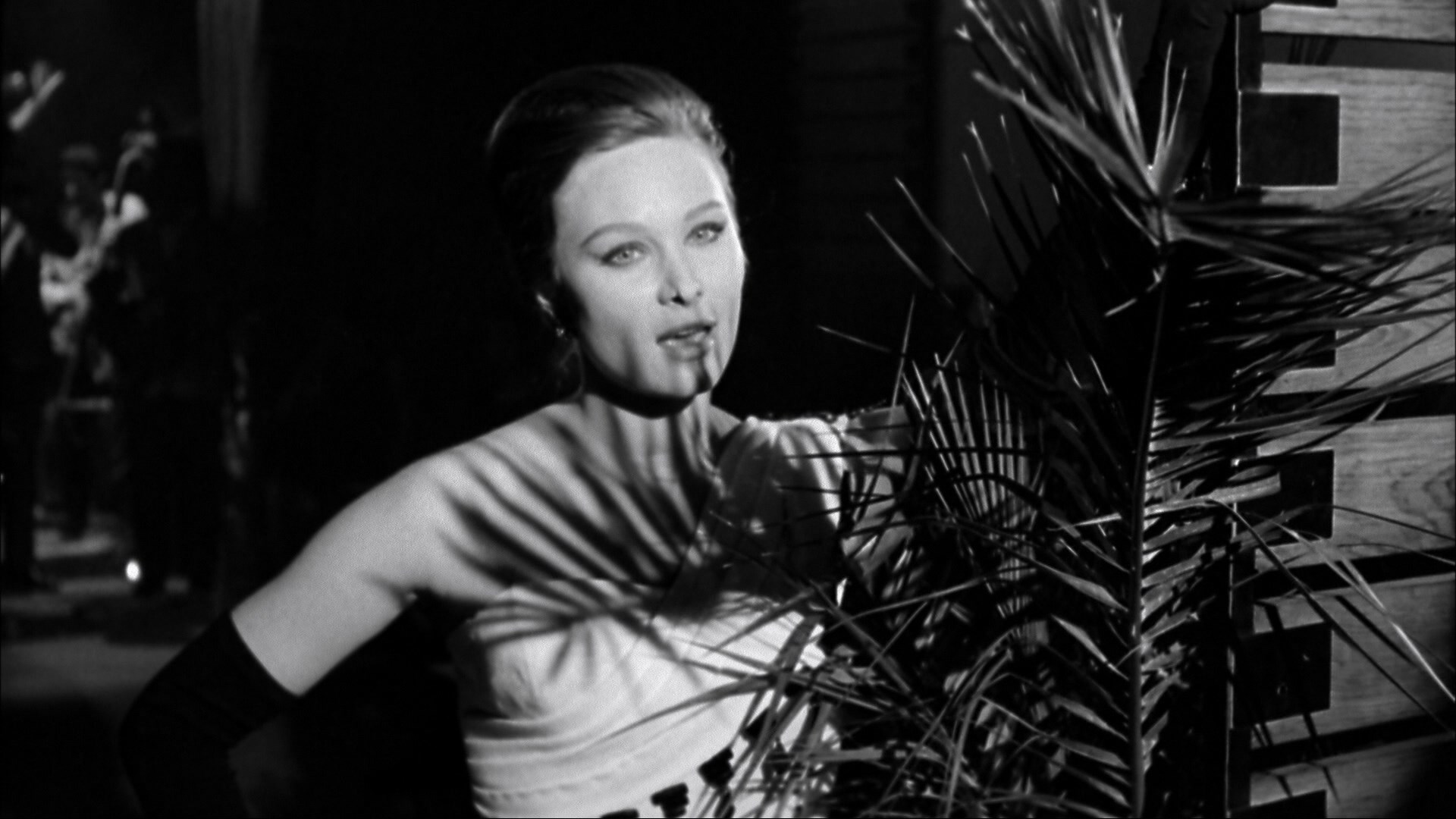 Vogel). Complicating things are Castro's widow, Lina (Cristal), who's now married to Radeck, and alluring nightclub singer Moira (Patisson),
Vogel). Complicating things are Castro's widow, Lina (Cristal), who's now married to Radeck, and alluring nightclub singer Moira (Patisson), 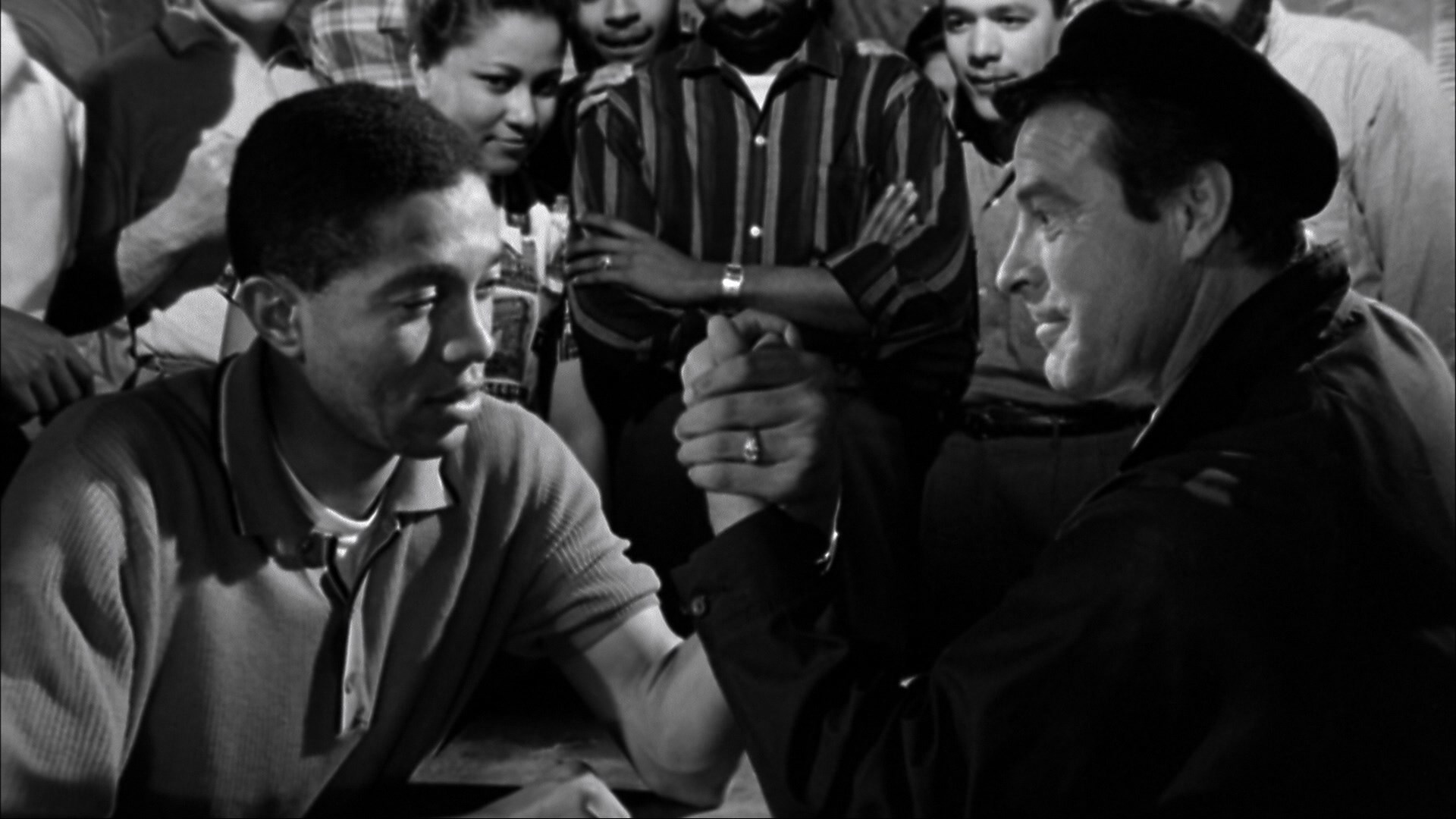 who may be more than she appears. Meanwhile a mystery man (San Martín) patronizes the club and keeps using that haunting song to chip away at Radeck's conscience for reasons that only become apparent later.
who may be more than she appears. Meanwhile a mystery man (San Martín) patronizes the club and keeps using that haunting song to chip away at Radeck's conscience for reasons that only become apparent later.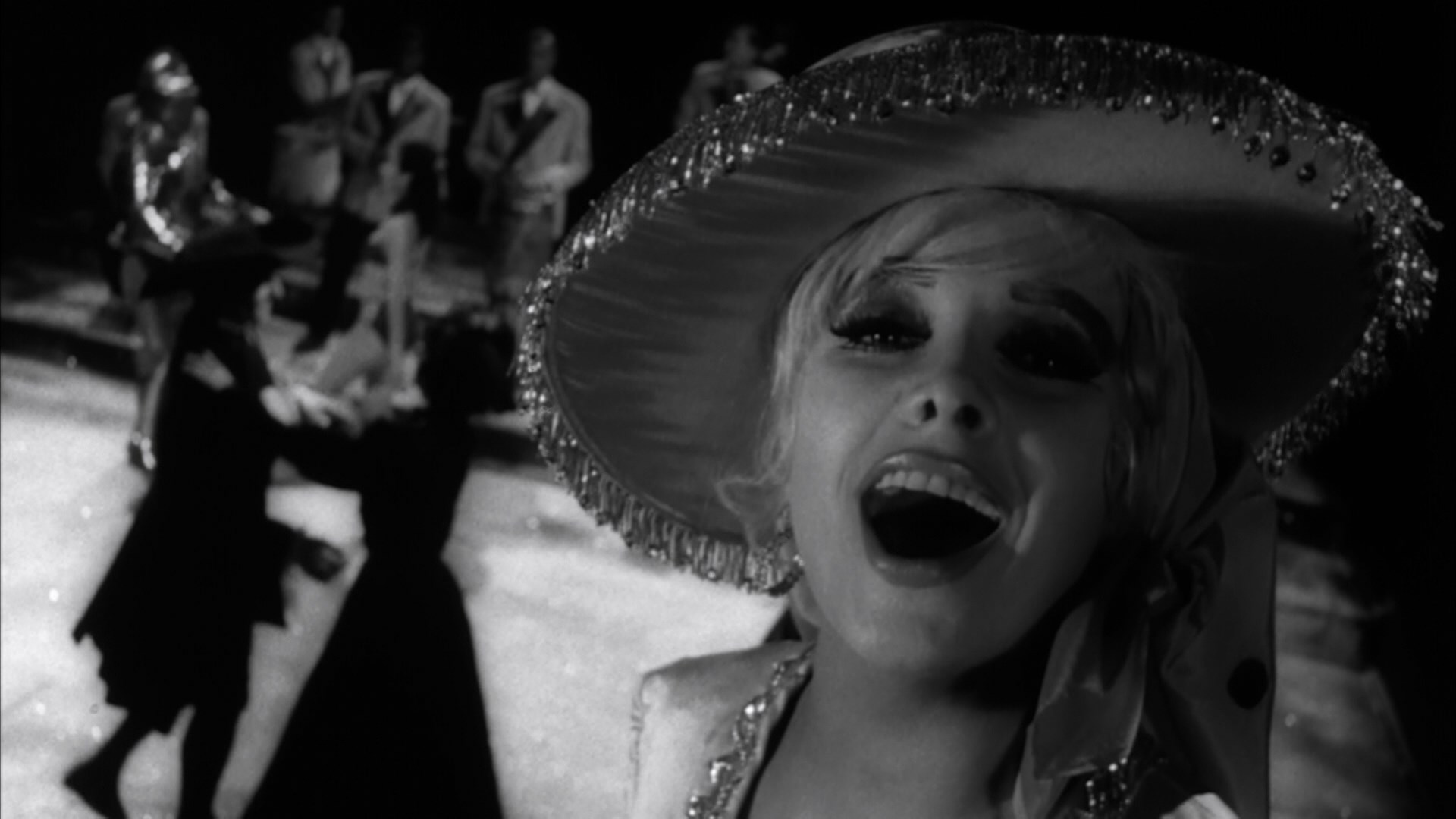 Servais (The Devil's Nightmare). This one actually beat Whistles (which was completed in '62 but released in 1964) into theatrical release, and it's bound to coax a grin out of the director's fans in the
Servais (The Devil's Nightmare). This one actually beat Whistles (which was completed in '62 but released in 1964) into theatrical release, and it's bound to coax a grin out of the director's fans in the 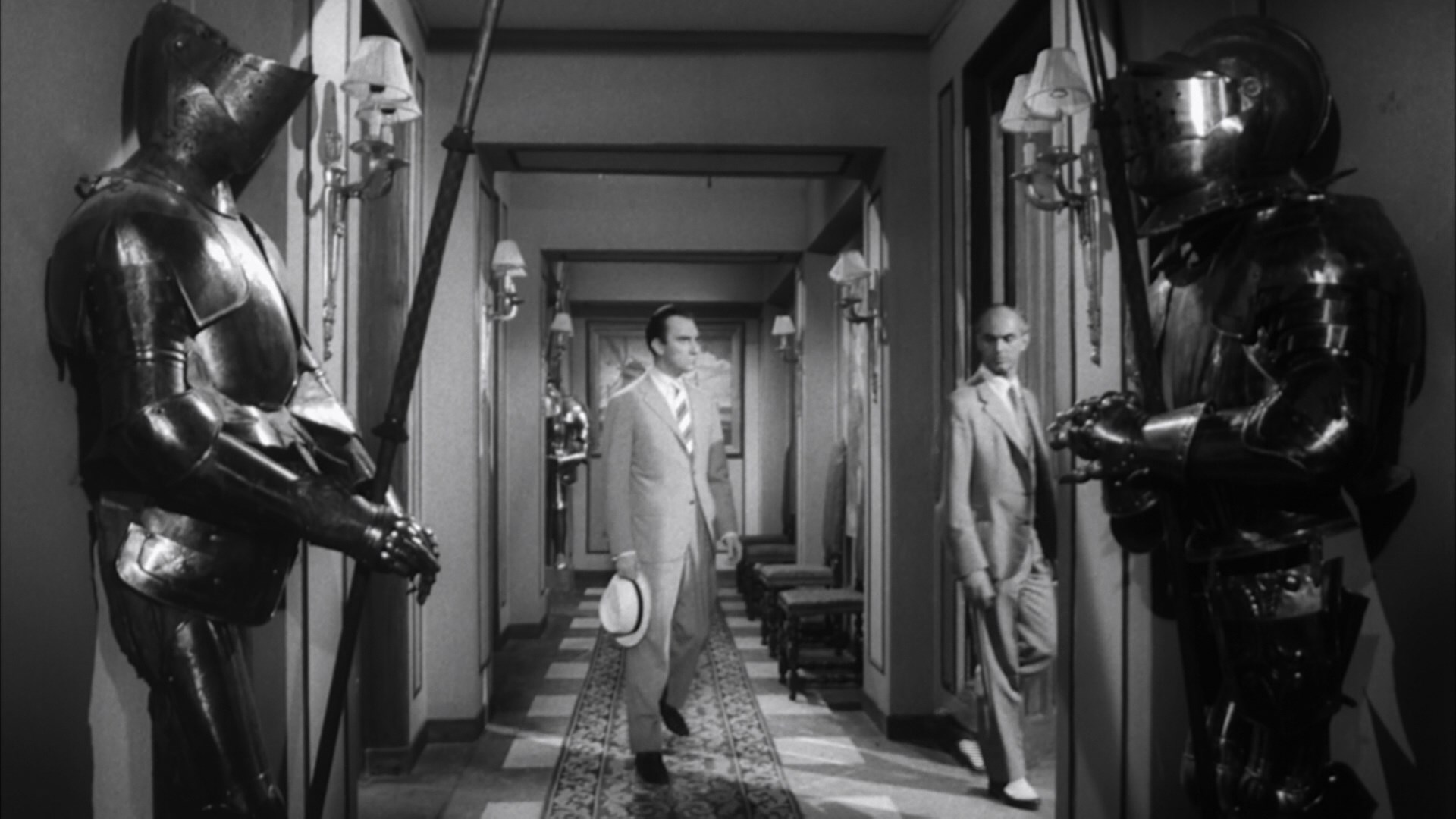 opening minutes as we're treated to a wildly infectious score by Franco's most important longstanding composer, Daniel J. White. Separated only by The Sadistic Baron Von Klaus between them, this builds on the musical crime film template of Death Whistles by amping up the nightclub numbers to a delirious degree, in many respects paving the way for what was about to come with The Diabolical Dr. Z. When the body of a Mexican bartender turned informant gets tossed through the front window of the home of police detective Miguel Mora (Gómez), the fuse is lit for the cop's efforts to take down the powerful and corrupt politician Maurice Leprince (Servais), whose deep crime ties and massive campaign machinery seem to make him untouchable. Meanwhile someone is bumping all Leprince's associates one by one, forcing the investigator to contend with two different dangerous angles as he realizes he may have to step outside the law to truly achieve justice.
opening minutes as we're treated to a wildly infectious score by Franco's most important longstanding composer, Daniel J. White. Separated only by The Sadistic Baron Von Klaus between them, this builds on the musical crime film template of Death Whistles by amping up the nightclub numbers to a delirious degree, in many respects paving the way for what was about to come with The Diabolical Dr. Z. When the body of a Mexican bartender turned informant gets tossed through the front window of the home of police detective Miguel Mora (Gómez), the fuse is lit for the cop's efforts to take down the powerful and corrupt politician Maurice Leprince (Servais), whose deep crime ties and massive campaign machinery seem to make him untouchable. Meanwhile someone is bumping all Leprince's associates one by one, forcing the investigator to contend with two different dangerous angles as he realizes he may have to step outside the law to truly achieve justice. 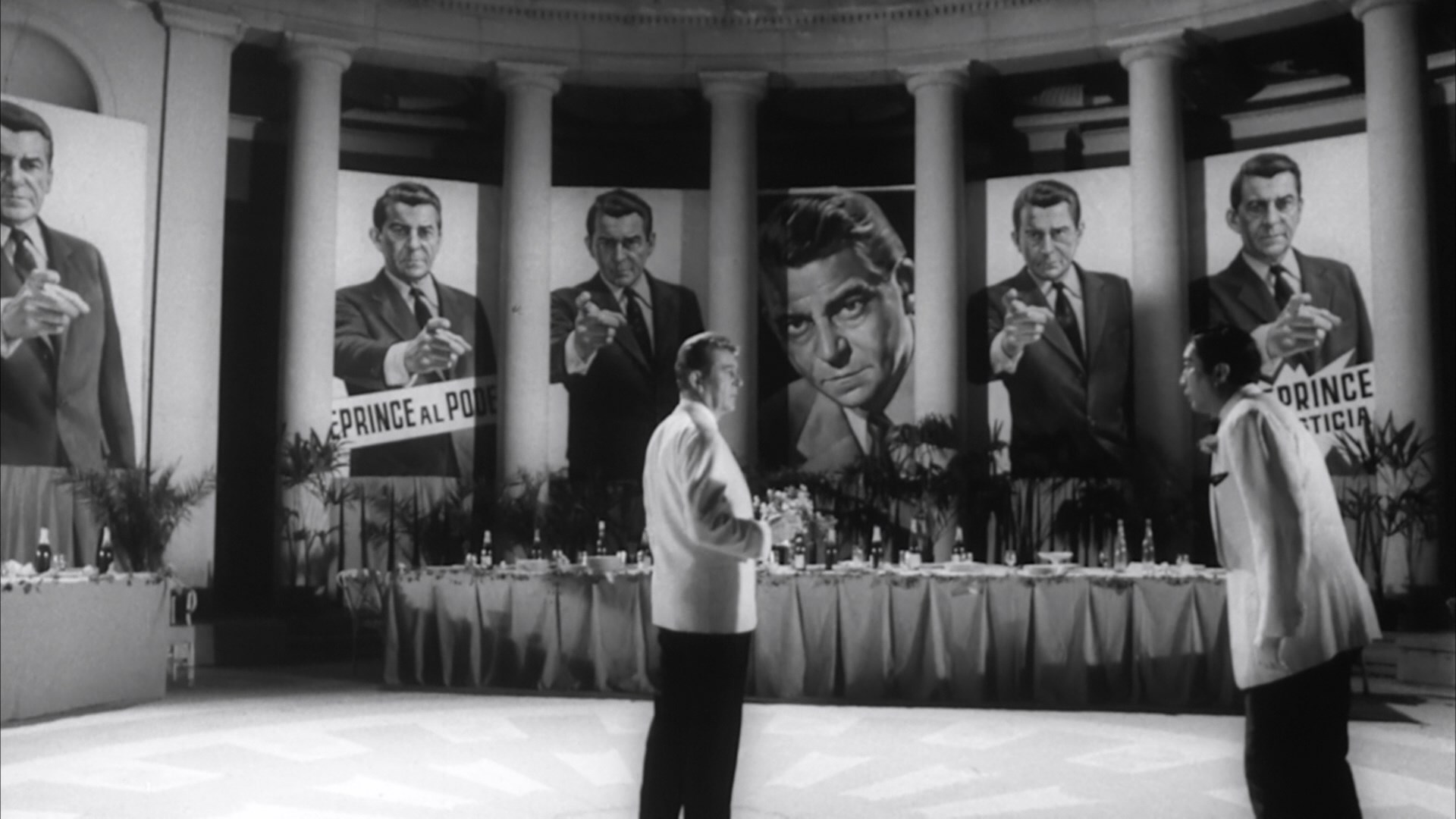 he was shooting Chimes at Midnight and the unfinished Treasure Island.
he was shooting Chimes at Midnight and the unfinished Treasure Island. 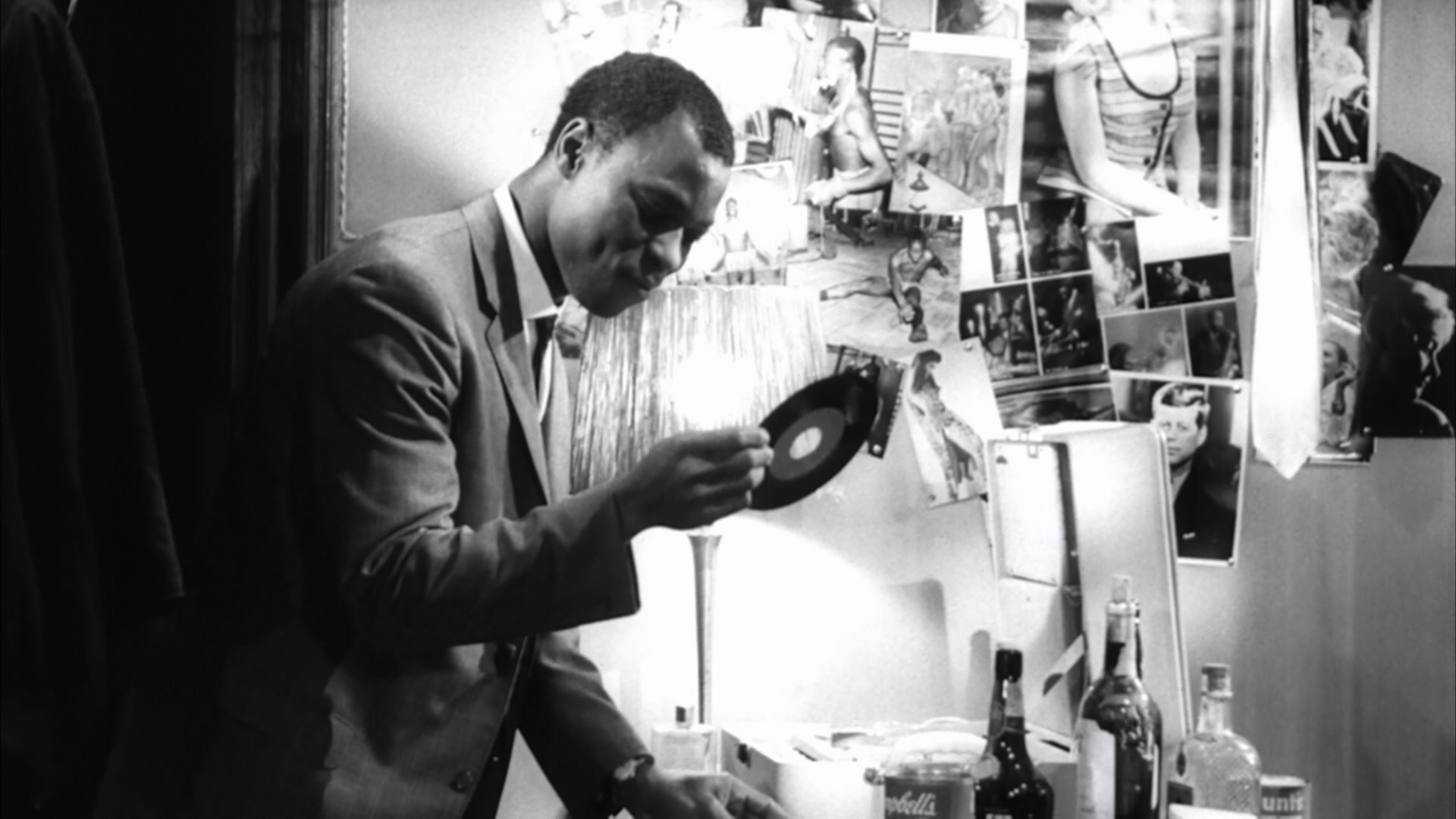 what appear to be iffy, ages-old TV airings, it's a real delight to see both of these films get commercial releases. Each film is presented in DTS-HD Spanish 2.0 mono, which is fine since the films were at least partially shot that way based on simple lip reading. (Rififi is especially strange with its international cast and tendency to use English for onscreen text including letters, so who knows?) The transfers are cited as being scans from the original negatives, which means any imperfections seen here are likely due to the source; some scenes boast pleasing depth and look sharp enough to satisfy, while others (including a handful that appear slugged in from a slightly lesser source) can get a bit soft and chunky. It's probably safe to say this is the best they'll ever look though, improving leaps and bounds over anything we've had before. In the essential "Franco Noir" (66m37s), Stephen Thrower presents another of his deep dive Franco appraisals complete with a look at how the filmmaker's career began under figures like Juan Antonio Bardem and León Klimovsky before moving into his own with a lifelong focus on horror and crime stories. He touches on the elements of Death Whistles culled from a book by Boileau and Narcejac (Vertigo, Diabolique) called Murder at 45 rpm., the intended casting of Howard Vernon, the Orson Welles connection, the surprising pass given to Rififi given its critique of corrupt fascist governments, the unusually forward-thinking complete integration of black and white characters, and the themes and players who would weave into his later work.
what appear to be iffy, ages-old TV airings, it's a real delight to see both of these films get commercial releases. Each film is presented in DTS-HD Spanish 2.0 mono, which is fine since the films were at least partially shot that way based on simple lip reading. (Rififi is especially strange with its international cast and tendency to use English for onscreen text including letters, so who knows?) The transfers are cited as being scans from the original negatives, which means any imperfections seen here are likely due to the source; some scenes boast pleasing depth and look sharp enough to satisfy, while others (including a handful that appear slugged in from a slightly lesser source) can get a bit soft and chunky. It's probably safe to say this is the best they'll ever look though, improving leaps and bounds over anything we've had before. In the essential "Franco Noir" (66m37s), Stephen Thrower presents another of his deep dive Franco appraisals complete with a look at how the filmmaker's career began under figures like Juan Antonio Bardem and León Klimovsky before moving into his own with a lifelong focus on horror and crime stories. He touches on the elements of Death Whistles culled from a book by Boileau and Narcejac (Vertigo, Diabolique) called Murder at 45 rpm., the intended casting of Howard Vernon, the Orson Welles connection, the surprising pass given to Rififi given its critique of corrupt fascist governments, the unusually forward-thinking complete integration of black and white characters, and the themes and players who would weave into his later work.